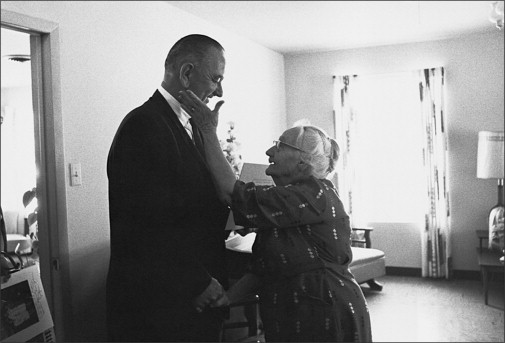Tag: The Lancet
Congressional showdown threatens NIH funding boost
 Volume 386, Issue 9996, 29 August 2015
Volume 386, Issue 9996, 29 August 2015
WORLD REPORT Bills providing extra funding for the National Institutes of Health while cutting other programmes could a face presidential veto. Susan Jaffe, The Lancet’s Washington correspondent, reports.
After years of mostly stagnant funding for the US National Institutes of Health (NIH), two powerful congressional committees that control government spending have approved separate budget bills containing record increases for the agency.
But last month, President Barack Obama’s Office of Management and Budget director Shaun Donovan wrote to the chairman of the Senate Committee on Appropriations warning that he expects the president to veto its bill. Among other reasons, Donovan said it “drastically” cuts money for public health programmes including Medicare for the elderly and Medicaid, serving low-income Americans. And it would deny funds for operating the health insurance exchanges essential to the president’s signature health reform law, the Affordable Care Act. [Continued in full text or PDF ]
…21st Century Cures
 12 August 2015
12 August 2015
A dispatch from our Washington correspondent on the sluggish progress of the 21st Century Cures Act.
Republicans and Democrats in the U.S. House of Representatives last month overwhelmingly passed the 21st Century Cures Act aimed at speeding up drug development. But the Senate is not expected to vote on its version until next year.
More than 80 percent of the House backed the legislation after it was unanimously — a word rarely heard on Capitol Hill — approved by the House Committee on Energy and Commerce. In the process, the bill was revised to address concerns that drug approvals would happen a little too quickly, circumventing safety and efficacy standards. [Continued here]
…50 Years of Medicare
 Volume 386, Issue 9992, 1 August 2015
Volume 386, Issue 9992, 1 August 2015
WORLD REPORT In July, 1965, Medicare, America’s landmark national health insurance programme, became law. Today, it covers 55 million people. Susan Jaffe, The Lancet’s Washington correspondent, reports.
Richard Troeh joined a very busy solo family medicine practice in 1966 but even with two doctors, their offi ce in Independence, Missouri, seemed just as hectic. The year before, President Lyndon Baines Johnson came to town to sign the Medicare legislation into law at the Truman library. Former President Harry Truman—an advocate of national health insurance since the 1940s—and his wife attended the event and were among the fi rst Americans to receive Medicare cards.
50 years later, the Social Security Amendments of 1965 provide health care for 55 million people older than 65 years or disabled receiving Medicare and nearly 73 million low-income adults, children, pregnant women, and people with disabilities receiving Medicaid, an optional programme also created under the same law.
And in the process, the government programmes have transformed health care in the USA. Medicare is the nation’s largest single purchaser of health care, consuming 14% of last year’s federal budget, or US$505 billion. And it also has a fiercely loyal following that opposes efforts to cut benefits. Speaking earlier this month at the White House Conference on Aging, President Barack Obama drew laughs when he said, “And now we’ve got [protest] signs saying, “Get your government hands off of my Medicare”. [Continued in full text or PDF ] [listen to podcast here]
…US Supreme Court upholds ACA subsidies
Volume 385, Issue 9988, 4 July 2015
WORLD REPORT Officials expect to launch the US President’s new health project later this year. But Congress has yet to decide whether to fully fund it. The Lancet’s Washington correspondent, Susan Jaffe, reports.
Although critics still deride it as Obamacare, President Barack Obama’s Supreme Court victory last week
enshrined the Affordable Care Act (ACA) as one of his greatest domestic accomplishments. The court might have also effectively disarmed the opposition, shifting the debate to next year’s campaign for the presidency as the next chance for critics to try to dismantle the law.
But for 6·4 million Americans who could have lost the health law’s insurance subsidies—the key issue before the court—the historic ruling has a different meaning. “Thank God, I can still get my medical care”, said Jacqueline Clay, a New Jersey woman receiving treatment for breast cancer who turned 61 years of age the day the court upheld the subsidies. “I am not going to die.” [Continued in full text or PDF ]…
Planning for US Precision Medicine Initiative underway
Volume 385, Issue 9986, 20 June 2015
WORLD REPORT Officials expect to launch the US President’s new health project later this year. But Congress has yet to decide whether to fully fund it. The Lancet’s Washington correspondent, Susan Jaffe, reports.
While continuing to defend his besieged health-care reform law against lawsuits and repeal threats, US President Barack Obama is championing a new health initiative. This one also has a bold goal: to radically change the medical treatment patients receive in the USA. “I want the country that eliminated polio and mapped the human genome to lead a new era of medicine—one that delivers the right treatment at the right time”, the President said when he unveiled his Precision Medicine Initiative (PMI) in his annual State of the Union address to the nation in January. …Central to the PMI will be the creation of a research cohort of 1 million US volunteers who agree to provide researchers with biological, environmental, lifestyle, and other information as well as tissue samples….The effort to vastly expand the scope and practice of individually designed treatments based on genetic information could revolutionise medicine, supporters say. But the success of the PMI depends on whether Congress agrees to fund it. [Continued in full text or PDF ] …
US FDA: the Margaret Hamburg years

Volume 385, Issue 9970, 28 February 2015
WORLD REPORT US Food and Drug Administration commissioner Margaret Hamburg is stepping down after nearly 6 years in office. The Lancet‘s Washington correspondent, Susan Jaffe, reports on her achievements.
Margaret Hamburg
At the end of March, Margaret Hamburg is leaving what has got to be one of the toughest unelected US Government jobs outside of the Pentagon—commissioner of the US Food and Drug Administration (FDA).
A champion of science-based regulation and streamlined approvals for breakthrough drugs, the Harvard-trained physician is one of the two longest-serving FDA commissioners in five decades.
The FDA is responsible for the safety of 20% of the products Americans buy, including more than US$1 trillion dollars worth of goods that might seem to have little in common, such as artificial hips, dietary supplements, gene therapy, surgical lasers, prescription drugs for human beings and animals, nanotechnology products, cosmetics, blood and biologics products, tobacco, and—last but not least—most of the food we eat (excluding meat and poultry, which are the domain of the agriculture department). The agency has 16 000 employees. [article continued in full text or PDF]
…
NIH budget shrinks despite Ebola emergency funds
![]() Volume 385, Issue 9966, 31 January 2015
Volume 385, Issue 9966, 31 January 2015
WORLD REPORT Even with a boost in funding for Ebola research, the US National Institutes of Health’s fiscal year 2015 budget is the lowest in years. Susan Jaffe, The Lancet’s Washington correspondent, reports.
During last year’s contentious congressional hearings investigating the US response to Ebola, the Obama Administration’s top health officials fended off criticism hurled by both Democrats and Republicans. But in another show of bipartisanship only a few weeks later, Congress granted nearly all of President Barack Obama’s request for emergency funding to combat the disease here and abroad.
NIH Director Francis Collins
In his State of the Union address earlier this month, the President expressed his appreciation: “In west Africa, our troops, our scientists, our doctors, our nurses, and health-care workers are rolling back Ebola—saving countless lives, and stopping the spread of disease”, he said, drawing applause from both sides of the aisle. “I couldn’t be prouder of them, and I thank this Congress for your bipartisan support of their efforts.”
Congress narrowly approved the US$5·4 billion emergency Ebola funding contained in the $1·1 trillion spending bill that kept the US Government running. But so far, it has done little to loosen the budget constraints on the National Institutes of Health (NIH)—even as a global health crisis such as Ebola reminded many lawmakers of its value. [MORE full text or PDF ] …
Second round of enrolment begins under Affordable Care Act
![]() Volume 384, Issue 9956, 15 November 2014
Volume 384, Issue 9956, 15 November 2014
WORLD REPORT Ahead of the next phase of enrolment for insurance plans, Republicans vowed to target the health law following their election win. Susan Jaffe, Washington correspondent, reports.
Federal health officials promise that last year’s embarrassing enrolment problems will not be repeated when the sign-up season begins on Nov 15 for 2015 health insurance policies offered under the Affordable Care Act (ACA). But even as more insurance companies and millions more Americans enter the second year of the health insurance programme, the opportunity for critics to chip away at it will never be better when Republicans regain control of Congress in January.
…Under the law, all adults are required to have health insurance and, with some exceptions, those without it are penalised. People who don’t get health coverage through their jobs can buy policies through the online state or federal insurance exchanges from Nov 15 to Feb 15. To minimise the delays many experienced last year, federal officials who run the exchanges in 37 states have shortened the application and no longer require shoppers to spend time setting up accounts before they can review the plans.
Although this month marks the second enrolment period, US Department of Health and Human Services (HHS) Secretary Sylvia Matthews Burwell has been eager to stress that it won’t be a rerun of last year. “It’s not year two”, she told reporters recently, because this is the first time the exchanges will be renewing current policies while also handling first-time applications. [MORE full text or PDF ] …
US federal health agencies questioned over Ebola response
![]() Volume 384, Issue 9953, 25 October 2014
Volume 384, Issue 9953, 25 October 2014
WORLD REPORT A congressional inquiry into the handling of Ebola in the USA has sparked new guidance to protect health-care workers. Susan Jaffe, The Lancet’s Washington correspondent, reports.
As US President Barack Obama ramped up the country’s response to the Ebola crisis domestically and abroad (panel), his top health officials attempted, during a tense congressional hearing last week, to address potential solutions to the epidemic ravaging west Africa, which has now reached the USA, confronting emergency medical providers at a well regarded hospital in Dallas, Texas.
But the Republican-controlled House of Representatives’ Committee on Energy and Commerce, which undertook the inquiry, did not seem particularly interested in discussing additional long-term investments in medical research—there is currently no cure for the disease—or the need to shore up, if not create, health-care infrastructure in the west African countries where more than 4500 people have died of the disease.
“To protect the USA, we have to stop it at the source”, said Tom Frieden, director of the US Centers for Disease Control and Prevention (CDC), at the hearing. “There is a lot of fear of Ebola, and…one of the things I fear about Ebola is that it could spread more widely in Africa. If this were to happen, it could become a threat to our health system and the health care we give for a long time to come.” [MORE full text or PDF ] …
Congress stalls on BRAIN Initiative funding
16 August 2014
WORLD REPORT US Congress is yet to decide next year’s funds for the BRAIN Initiative. Meanwhile, researchers move ahead with initial grants and a scientific plan. Washington correspondent Susan Jaffe reports.
The US National Institutes of Health is expected to announce next month the recipients of the first US$40 million in research grants to be awarded under President Barack Obama’s ambitious brain research project he says will give scientists the tools to discover “how we think and how we learn and how we remember.”
Despite uncertain future funding, Obama’s Brain Research through Advancing Innovative Neurotechnologies (BRAIN) Initiative is moving ahead. At the White House a year ago, the president compared it to the Apollo space mission that landed a man on the moon, GPS technology, and even the creation of the internet. “All these things grew out of government investments in basic research”, he said. [MORE]…
Link
![]() Volume 381, Issue 9882, Pages 1975 – 1976, 8 June 2013
Volume 381, Issue 9882, Pages 1975 – 1976, 8 June 2013
WORLD REPORT Health and science agencies in the USA have been operating on reduced budgets, enforced by sequestration, for just over 3 months Susan Jaffe reports from Washington, DC.
The automatic budget cuts known as sequestration that the US Congress approved in 2011 were intended to be so onerous that they would never happen. Lawmakers would surely find a more reasonable way to save at least US$1·2 trillion over the next decade before the cuts would begin in 2013. Instead, Republicans and Democrats could not agree on an alternative, and the first wave of cuts, totalling $85 billion through to September, 2013, are phasing in for most non-defence US Government operations. Everything from White House tours to the most promising cancer research have been limited by a lack of funding.
..Many services provided by the US Department of Health and Human Services (HHS) are affected, including programmes at the Food and Drug Administration (FDA) and the Centers for Disease Control and Prevention (CDC), and medical research funded by the National Institutes of Health (NIH). Even the Affordable Care Act (ACA)—President Barack Obama’s landmark health reform law—will feel the impact, with supporters worried that enrolment for next year’s new health insurance coverage will have a difficult start in October. [FULL STORY AS PDF]
Link
![]() Volume 380, Issue 9848, Pages 1133 – 1134, 29 September 2012
Volume 380, Issue 9848, Pages 1133 – 1134, 29 September 2012



